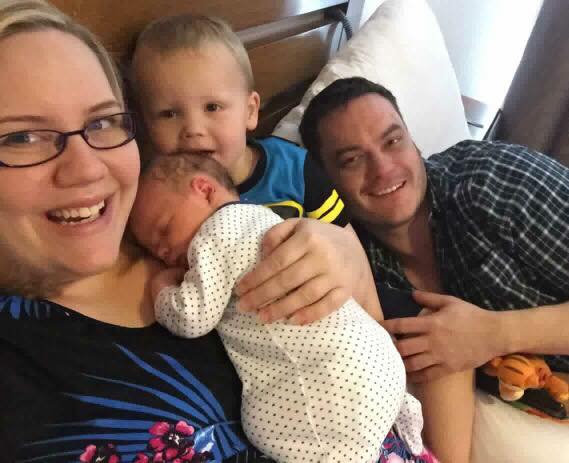
After six nights in hospital, her c-section wound healing, Jess Buchanan was preparing to take her newborn son, Jack, home for the first time.
“I remember looking at my bub in his capsule, he looked a bit different. I said to [my husband] Angus, ‘Does he look okay to you?’
“‘Yep, let’s go,’ he replied, and I didn’t give it another thought.
“We went home.”
Just a few days later little Jack died, his future robbed by a virus roughly 80 per cent of the Australian population carry: Herpes Simplex 1, commonly known as the cold sore virus.
Sharing her story to Dad Minus One, the blog of vaccination campaigner and Light For Riley co-founder Greg Hughes, the mother recounted the final days of Jack’s cruelly short life; from the restlessness, the reluctance to take the bottle, to the the dry nappies during his second night at home.
By the third morning, the couple were racing back to the hospital. A specialist team spent five and a half hours attempting to stabilise the newborn, before he was transferred to Sydney Children’s Hospital.



Top Comments
This is truly a tragic story. I cannot imagine how hard it is for any parent to lose a child. I think it has been drilled into us time and time again that herpes simplex virus can cause death in babies. It's sad that this wasn't known to the parents of this child. I think if you do your due diligence and read or inform yourself of simple things before you have a baby it helps. I knew this year's before I had children 12 years ago and I am actually surprised it isn't common knowledge. So many stories and so many deaths of children that could easily have been prevented if parents were just informed.
Thank you for the article, it’s absolutely heartbreaking! I hope some people realise how dangerous they can be with their touch and kisses to newborns. Unfortunately Most people have NO IDEA! I get crap and teased all the time for making my family and friends wash their hands before holding my babies. They also think I’m crazy as I don’t go out (unnecessary social trips) in the first 6 weeks before they’re immunised in a desperate attempt to limit exposure to people. But they can shove it where the sun don’t shine! Mother’s stand up - don’t stand awkwardly by while grandma Smothers the baby in kisses, or John Doe at the supermarket holds their hand. Just say - thank the baby is beautiful but please don’t touch.